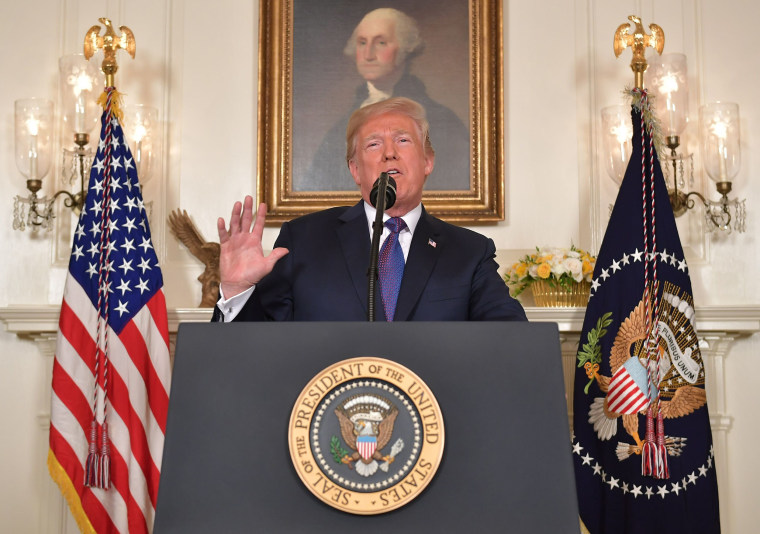It's difficult to separate a leader's decisions from their context. After Donald Trump announced the launch of new military strikes in Syria on Friday night, for example, much of the world was forced to consider the possibility that the American president may have been motivated, at least in part, by the scandals and criminal intrigue consuming his presidency.
As Rachel put it on the show after Trump's White House remarks:
"The perception that the president may have ordered these strikes in part because of scandal will affect the impact and the effectiveness of these military strikes. Unavoidably. Even if the tail is not wagging the dog, even if you give the president every benefit of the doubt, even if his calculations about whether to launch this action against Syria tonight was taken with absolutely no regard for what else is going on in the president's life right now, what else is going on in the president's life right now unavoidably creates a real perception around the globe that that may have been part of the motivation both for what he did and particularly for when he did it."And it is a sad thing and it is an upsetting thing in terms of American influence in the world and the risks that we take when we use American military power anywhere. But that perception, that this president under this much siege may have made this decision that was in any way inflected by the scandals surrounding him, that by necessity has shaped America's national security options for who we are in the world tonight and it will unavoidably shape the impact of this military action."
It's against this backdrop that the president should be going out of his way to reassure the public and the world that his principal focus is on the national security interests of the United States and its allies, and the broader goal of peace and stability in the region. Trump has a powerful incentive to at least pretend to be a responsible leader right now, signaling to the world that no matter the concerns about his presidency, he's approaching U.S. intervention in Syria with sober maturity, with seriousness of purpose, and with a clear and stable mind.
But he's not. Trump has spent the last few days doing the opposite.
On Friday afternoon, when the American president was presumably weighing options for a military offensive, Trump took time out of his schedule to publish a tweet about former FBI Deputy Director Andrew McCabe. The president wrote, "He LIED! LIED! LIED!"
Yesterday morning, Trump continued to show no real interest in developments in Syria, publishing an attack against former FBI Director James Comey. Then another. Then another. Then another. Then another.
Trump was then eager to focus his attention on his approval rating.
On Friday, a source familiar with the president's thinking told CNN's Gloria Borger on Friday that Trump is, among other things, "flailing" as the scandals surrounding his presidency intensify. Trump's anger was reportedly "beyond what anyone can imagine."
The president's assurances about being a "very stable genius" notwithstanding, how is it that the public can have confidence in his national security decision-making given these circumstances?
